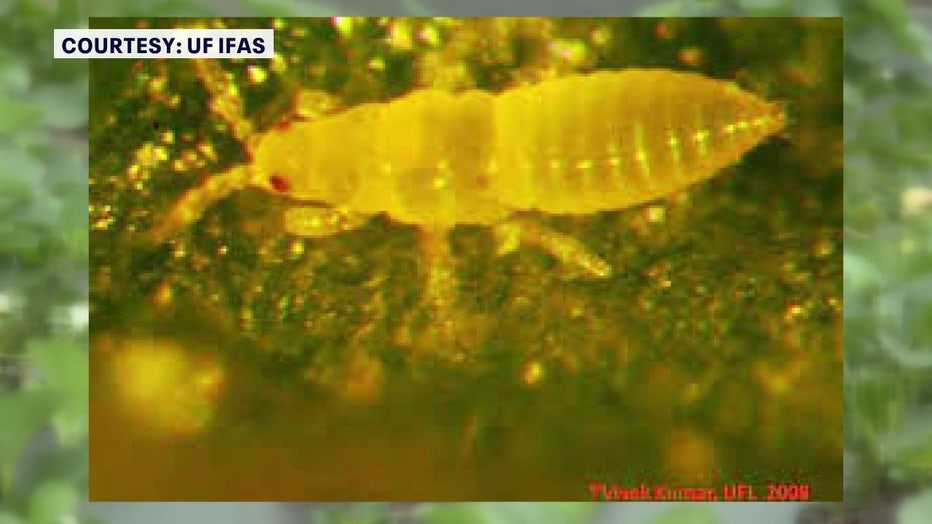Tiny insect called chilli thrips threatens local strawberry industry

Strawberry industry threatened by tiny insects
Chili thrips are harmless to humans but devastating to strawberries. They put Florida's $1.5 billion Strawberry Industry at risk.
TAMPA, Fla. - With no big freezes this winter, the strawberry fields in the Tampa Bay Region should be fruitful and profitable, but farmers are finding a tiny killer.
It's called the chilli thrips. The tiny insect is harmless to humans but devastating to strawberries.
"It can adapt so rapidly and become resistant to all the chemistries we currently have," explained Kenneth Parker, executive director of the Florida Strawberry Growers Association.
READ: Inside Plant City’s Wish Farms warehouse during strawberry season
Parker says chilli thrips are elusive. They shelter from insecticide applications by hiding in the crown of the berry beneath the calyx, the green, leafy part at the top of the berry.
The insect came from Southeast Asia. Scientists say it has now spread through the Southeastern U.S., parts of Texas, and it's even been found in the Northeast, in New York, Pennsylvania, and Massachusetts, where it feeds on vegetables.
Scientists with the University of Florida Institute of Food and Agricultural Sciences (IFAS) are studying ways to battle the chilli thrips which ruins both the leafy part of the plant and the fruit.

"This is currently a major problem," shared Sriyanka Lahiri, an assistant professor of entomology based at the IFAS field station in Wimauma. "They become resistant to chemicals and their population just explodes into the field. Up to 80 percent of the fruit can be lost."
Scientists at IFAS are hoping to develop a new variety of strawberries that are more resistant to the chilli thrips. They're also experimenting with tiny mites that are placed near strawberry fields.
READ: How Plant City's ‘Strawberry Sue’ became a champion for Florida’s strawberry industry
They believe the mites may be able to kill chilli thrips before they reach the plant.
Potential losses to the chilli thrips could put Florida's $1.5 billion Strawberry Industry at risk. Parker said the Growers Association doesn't have a dollar amount on damage caused so far.
SIGN UP: Click here to sign up for the FOX 13 daily newsletter
WATCH FOX 13 NEWS

